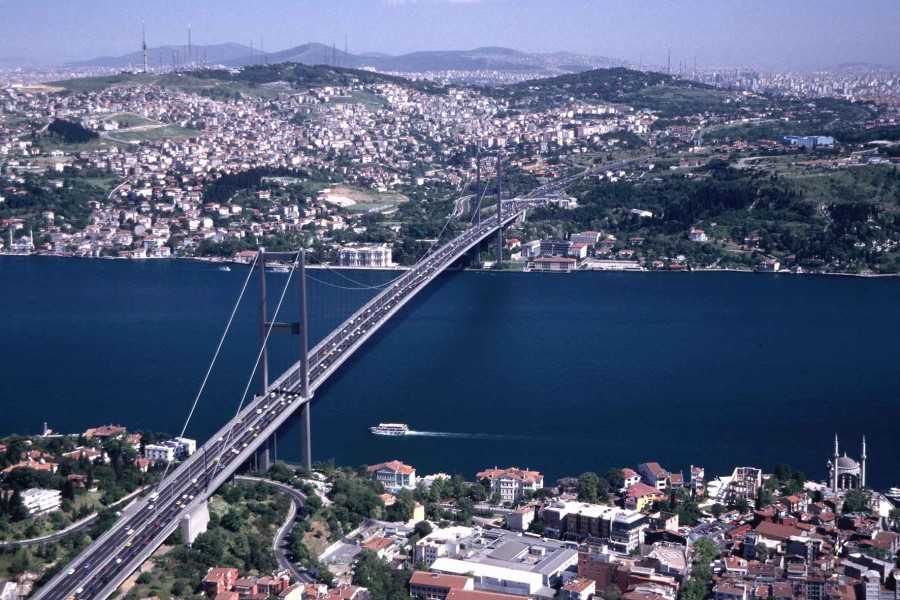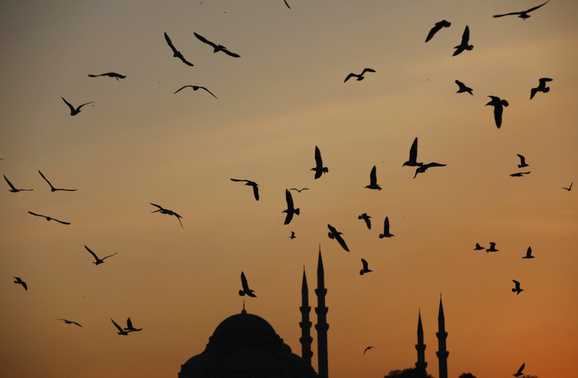Ask most travelers to list their favorite European cities, and they’ll most likely feedback with the classics: Paris, Rome, Venice, Florence, Barcelona, Amsterdam, Munich and many others. But one destination that doesn’t always make the list is not only the largest metropolitan city proper in Europe, but also the former capital of both the Roman and Ottoman empires.
Need a hint?
 e’re talking about ancient Byzantium, medieval Constantinople and modern Istanbul. Turkey’s capital city, not to mention its financial hub and cultural center, is built on both sides of the Bosphorus Strait. As such, it is the world’s only bi-continental city, located literally and figuratively at the crossroads of Europe and Asia.
e’re talking about ancient Byzantium, medieval Constantinople and modern Istanbul. Turkey’s capital city, not to mention its financial hub and cultural center, is built on both sides of the Bosphorus Strait. As such, it is the world’s only bi-continental city, located literally and figuratively at the crossroads of Europe and Asia.
Any time of year, Istanbul charms and enchants with its skyline of elegant minarets rising from the slopes of seven hills. But summertime heat awakens denizens from their winter slumber, imbuing the streets with vigorous life. Alfresco cafes brew cardamom-infused coffee, while waterside bistros serve up the fresh catch of the day.
With a material history dating back to the Byzantines, Istanbul is a veritable living museum of architectural stylings. You can easily spend a week exploring each of the city’s distinct neighborhoods, and check-off several UNESCO World Heritage Sites in the process. So, without further ado, let’s shine a much deserved spotlight on Istanbul.
Gallery: Spotlight on Istanbul
The Sultanahmet district lies at the heart of the old city, and is home to both the Hagia Sophia and the Blue Mosque. The former was built by the Byzantines during the 6th century CE, and was designated as the largest cathedral in the world for almost one thousand years. Converted into a mosque by the Ottomans, the Hagia Sophia and its crowning dome inspired similar constructions throughout the empire.
One such prominent example is the Sultan Ahmed Mosque or ‘Blue Mosque,’ which was built in the 17th century directly across from the Hagia Sophia. Rising up from the foundations of the ruined Byzantine palace, the Blue Mosque earned its moniker from the tens of thousands of ceramic tiles lining its interior. The exterior is distinguishes by its six minarets, vaulted arcades and undulating series of domed cupolas.
Together the Hagia Sophia and the Blue Mosque serve as Istanbul’s monumental crown jewels. But this is not to say that the pair are the solitary focal point of the skyline. On the contrary, Istanbul is a sprawling panorama of delicate minarets rising up to the heavens. One of the best ways of appreciating the viewscape is to travel the city’s myriad waterways by ferry, tour boat or even local water taxi. Istanbul is simply magical just before sunset when the minarets turn dark black against a fiery sky.
Tourists in search of authentic handicrafts and tacky kitsch alike inevitably descend on the Grand Bazaar. Built in the 15th century, this covered marketplace has thousands of shops lining dozens of pedestrian throughways. Overpriced carpets and hookahs of dubious quality are peddled with vigor, but look beyond the aggressive touts to discover the genuine article. Turkish textiles are of very high quality, as are the works by resident cobblers, carvers, goldsmiths and jewelers.
If the tourist gauntlet becomes too much to handle, fret not as there are bargains to be had well beyond the walls of the Grand Bazaar. Scattered throughout the city are smaller markets of various manifestations that cater primarily to locals. The food markets are especially intoxicating to behold, complete with steaming vats of thick stews, carefully arranged piles of exotic spices, jars of pickled vegetables and rectangular trays lined with all manners of sweet, flakey and gooey pastries.
Indeed, Turkish cuisine is rich and varied, drawing ingredients and inspiration from the European, Central Asian and Middle Eastern corners of the Ottoman empire. It can be as basic as sesame-coated breads and seasoned yoghurt, or as complex as multi-course vegetable mezes and heavily-seasoned roasted kebabs. Domestic wines are surprisingly smooth and refreshing, unlike the local firewater that is anise-flavored raki.
Eating and drinking is a full-time activity in Istanbul, and reason enough to sacrifice some sightseeing in favor of restaurant-hopping. One of the most fashionable addresses to do so is Independence Avenue, a Parisian-inspired boulevard of 18th century Beaux-Arts buildings. Amidst the high-end retail shopping are some of the city’s most celebrated cafes, restaurants, bars, bistros, patisseries and confectionaries.
If you need to detox after imbibing a bit too much of the food and drink, there is no better destination than any of Istanbul’s hamam or Turkish-style bathhouses. Continuing the legacy of public bathing that dates back to the Greco-Romans, the hamam is comprised of several marbled rooms containing various hot and cold water baths. Impurities are sweated out in the saunas, and muscles and joints are loosened up in the pools of water. Attendants are also on-hand to offer therapeutic scrubs, leaving you with baby soft skin and a new appreciation for the wonders of cosmetology.
If you’re feeling a bit too squeaky clean, you can always spend the evening boozing it up along the Golden Mile. Dancing to Turkish techno with a cold lager in hand will give you some much needed perspective on the modern face of the city. Youthful, carefree and tolerant, the Golden Mile is where any remaining stereotypes of staid and conservative Istanbul quickly vanish away.
So, what are you waiting for?
Turkish Airlines, alongside most major carriers, connects US and Canadian cities to Istanbul. Accommodation is varied, and ranges from converted palaces to humble B&Bs. Summer heat and humidity can be stifling at times, but it’s a small price to pay for the opportunity to step foot in one of the world’s most fabled cities.
** All gallery images are the author’s own original work. All others were sourced from the Wikimedia Commons Project **





